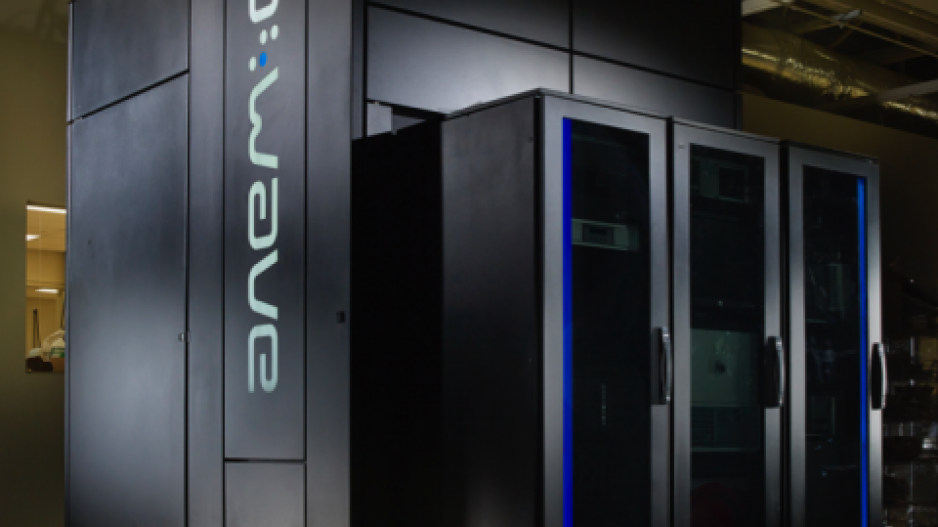Vancouver’s first quantum software developer is taking its technology to the next level…of recognition, that is.
The World Economic Forum announced Wednesday (August 5) it has named 1QBit to its 2015 class of technology pioneers.
Previous winners include AirBnB (2014), Google (2002), Kickstarter (2012) and Dropbox (2012).
“We’re really excited and honoured to be recognized by the World Economic Forum,” CEO Andrew Fursman told Business in Vancouver.
“It’s one of institutions that you spend your days reading about more than you think you’ll ever participate with.”
1QBit has a team of about 30 people working from its offices in downtown Vancouver. Because it’s such a new field of study, Fursman said there were concerns about being able to recruit a qualified team from around the region but so far the company has been successful.
Quantum computers use subatomic particles to process complex calculations almost instantly. Traditional computers rely on two bits – ones and zeroes – to make calculations; quantum computing relies on qubits. Qubits possess a “superposition” that can be one and zero at the same time and calculate all possible values in a single operation.
“There’s a very large class of problems traditional computers are very bad at,” Fursman said, noting the addition of just one variable can actually make some calculations exponentially more complex.
“It’s kind of a dirty secret in the computing industry.”
Burnaby’s D-Wave has developed the world’s first commercially viable quantum computer — although some describe it more as a quantum co-processor.
1QBit develops software for quantum computers, allowing it to tackle complex tasks in financial services, life sciences and the energy sector.
On July 30, the Canada First Research Excellence Fund committed $66.5 million in funding for quantum matter research at the University of B.C. over the next seven years. The grant is partially aimed at bridging the gap between research and industry.
“Many of us in Vancouver have a dream that Vancouver will really become a technology hub for the quantum industry,” Fursman said.
“And certainly having more educational support and basically pulling people into Vancouver in order to study these things…certainly that creates an even more acceptable talent pool for us.”




